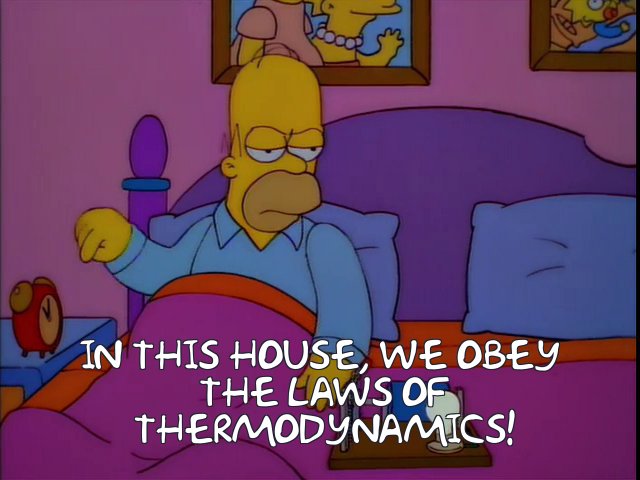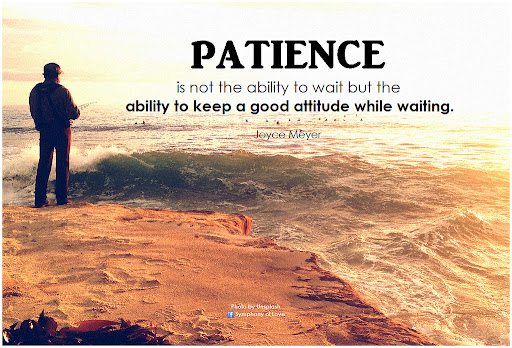Top Five Weight Loss Facts
Many years ago nutrition was actually the first certification I ever achieved, and since then as a trainer I’ve helped countless people lose scale weight along with getting stronger and healthier. I’ve got some stories that would be very hard for people to believe. Over that time, I have seen so many consistent facts come out with people that are both successful and unsuccessful, so that it’s pretty easy to narrow down the winning strategies.
I’ve come up with a list of my top five weight loss tips…facts…hacks. Whatever you want to call them. These honestly don’t have a lot to do with what you’re putting in your mouth, but more why or why not. Hopefully it can turn on the light bulb in your mind that will help you make progress in the right direction instead of constantly going back and forth battling yourself to achieve better health from a bodyweight perspective.
Calories in is the number one metric to track
The simple fact is, that the amount of energy you take in is what is going to get distributed to your body and used. Some people add calories out to this metric, but the way it works is that your body uses a certain amount of calories per day, and this can be based on a number of different factors. What’s the most important part of this equation is the energy balance, meaning that you take in a certain amount of calories and your weight either goes down, stays the same, or goes up. Finding out that number first before you worry about the amount of calories you’re expending is the most important metric.
It’s been proven in studies over and over again that you can even eat 1500 calories a day of terrible food, IE. McDonald’s, and still lose weight. Is it the healthiest thing in the world? Absolutely not, and the volume of food that you’ll be taking in might be significantly less because the items are much more calorie dense, however the energy balance equation still holds true.
So if you have no idea how many calories you’re actually taking in, sit down and actually track it honestly for a couple of weeks. The results may shock you, as I’ve had happen with many clients in the past. Some days you could be taking in 1500 calories, and other days you are taking in 3500 and what that will do is average out over time. Don’t kid yourself by saying you’re being good during the week, and then drinking two bottles of wine and going out for high calorie meals on the weekends. Once you find your average number, figure out what direction your weight is trending in and then adjust accordingly – and slowly.
Until you know the amount of energy you’re taking in you won’t be able to figure out the other parts of the equation.

You can’t out train your diet.
As you might imagine based on what I just explained, simply increasing your exercise output isn’t necessarily going to skew things enough to be able to see results in a timely manner. In fact, what often happens is that people will start exercising more intensely and then they will reward themselves with food thinking that they have accomplished more than they actually have. As an example, you can go and do a spinning class at your local gym for 45 minutes and burn 500 calories. That same gym (as a reward) will suddenly say, ‘here have a protein shake’ which is made with all sorts of high calorie things because then it will taste better. So 400 of that 500 calories just got replaced with that one protein shake, which they will claim is healthy for you. Net loss? 100 calories.
Another example might be, ‘OK I can go for a walk, David! Burn some calories!’ Again, just as an example a 200 pound person walking at a moderate pace for 30 minutes will burn 167 calories.. this type of thing is typically replaced with one yogurt or a couple of pieces of fruit.
Now, exercise has so many other benefits beyond weight loss. It’s healthy, it’s good for your joints, it increases your strength, it gives you more energy, it helps you sleep better. However, heading off to Orange Theory Fitness a couple of times a week won’t help you at all if you reward yourself with a frothy drink from Starbucks right after the class or have two extra slices of pizza when you’re out with your kids for movie night because you ‘deserve it’.
Again, exercise is GOOD. Do it. Just remember that for weight loss it is usually a small part of the equation.
Fad diets work because they drop your calories.
We all know about the different diets that are out there. Paleo, keto, vegan, carnivore. In terms of weight loss programs there are Weight Watchers, Atkins, Bernstein. Diets that will tell you to drink shakes twice a day and then have one regular meal. Diets that will tell you to eat cabbage soup all day.
The fundamental thing that all of these diets do is the lower the amount of calories you’re taking in, which is why you will see a substantial amount of weight and water loss at the beginning of a diet. Typically people who are overweight will have to eat at least 10 to 12 times the amount of their body weight in calories to maintain their weight. So at 250 pounds, one typically has to eat about 2500 to 3000 calories a day – average – in order to maintain that weight. Suddenly I go on a diet where I drop that amount to even 2000 calories (if you’re eating the right foods this can be a substantial amount) and suddenly my weight starts go down. Surprise, surprise.
Keto is a perfect example of this. It will give people the impression that they can eat whatever the heck they want that’s delicious. Meat, butter, cheese, eggs, and they get to have all these keto snacks that they think are really healthy. Well if you pick up a package of dark chocolate keto nuggets from Costco, one 20 gram serving has 120 calories. That’s one nugget. And how many people eat just one nugget? Nobody. Is it a healthier snack than having an order of French fries? Possibly (three nuggets is the same as a regular order of fries by the way), but if you want to consider weight loss you could be sabotaging yourself quite a bit.
Extreme examples like Bernstein or the cabbage soup diet typically have people crashing their calories to 500 to 1000, and of course you’re going to lose weight at that level in an incredibly unhealthy way. I’m not going to get into the negative stress it places on your body, either. So don’t think it’s a magic pill, because the magic is just basic energy balance.
You don’t need to completely change your diet
What most people end up doing thanks to marketing hype, is they think that the newest diet is going to be the solution for them. Meanwhile, human beings are extremely habit oriented people. We do the same things, at the same time, in the same way for years. And when you try to change a habit, especially one that’s ingrained in physical and emotional reward patterns it is extremely difficult to stick to it.
Do you need to completely revamp your diet in order to achieve weight loss? Absolutely not. You don’t need to suddenly start eating things that you wouldn’t normally eat, or juicing everything, or starving yourself for 18 hours a day. You can still eat the same things that you would normally enjoy. But I have two little words for you: portion control.
Does your family all eat pasta on Friday nights and it’s a nice family event? Great, just figure out ways to make your portion of that meal a little bit less. Doesn’t even have to be a lot. If there’s a celebration like a birthday and you want to participate in cake, don’t deny yourself that, just have a smaller piece. If you’re out with friends having some drinks, make every other drink a glass of water or soda water instead of having another alcoholic beverage. Did you have a big meal at lunch because of reasons? Have a smaller dinner.
So many weight loss gurus will tell you that you need to completely change your entire lifestyle and human beings don’t work that way. In fact, your brain in your nervous system will resist change as much as possible because habits are comfortable and safe. Typically people who try to do this type of thing don’t sustain it for a period of time, and then wonder why they fail over and over again. Yes, there are certain fundamental things that you may need to eliminate, especially if you want to be a healthier human being (like extremely sugary foods, moderate alcohol, and large amounts of starchy carbohydrates), but making big changes all at once is a road to failure. Make small adjustments and maintain what you’re used to by either making your portion slightly smaller, or substituting lower calorie foods for higher calorie ones, and you will be much more successful over time.

Control your emotions when it comes to food
From a psychological standpoint, this is probably the number one thing that most people need to focus on if they truly want to change their habits and become healthier. We all have emotional connections to food, and to be completely blunt, food is an addiction for many people. We use it to soothe ourselves after a stressful day, we use it to reward ourselves for something we feel entitled to, and we even use it to show affection to our family members or even sabotage them because of our own feelings.
One way I always try to get my clients to think about food, is that food is simply converted into energy and used. If you’re using it for emotional reasons, then a small amount will have exactly the same effect as a big amount. What needs to happen is you need to adjust the emotional reasons that you eat certain foods, or adjust the priority for having that food.
A good example is a recent client who struggled for years with eating potato chips. It was a crunchy snack that brought her comfort in the evenings when she was watching television. Over the years the weight kept creeping up, and just like any addiction she would stop it for a period of time and then pick it back up again when a stressful situation happened in her life. The pleasure that eating the potato chips brought to her outweighed the fact that she was gaining weight. That was, until she went to her doctor and got some blood tests back that told her her cholesterol and triglycerides were at a high point. Getting back into a healthier state became more of a priority than comforting herself with food, and she was able to look at the chips as something that was hurting her and not helping her feel better. That simple mental change allowed her to drop 20 pounds and feel a ton better physically.
I have dozens of examples of this type of thing happening throughout the years, which is why I always bring it up. If you struggle with certain habits and feel like you are addicted to eating in certain ways, sometimes it helps to take a step back and really look at why you’re doing that from an emotional and mental standpoint rather than just thinking of it from a physical perspective. And then once you’ve figured out what your triggers and habits are, try to adjust them into a way that is more productive towards your weight loss goals. With any addiction, you will get urges. Your brain does not like change, but eventually over time if you dedicate yourself to the process you’ll find that it’s an adjustment in the right direction.
If any of these tips have resonated with you, please comment and feel free to share this article. I’m always interested to hear and see who is being reached by my work. And as always, I’m here to help if you have any questions. I hope you all have a fantastic week!






